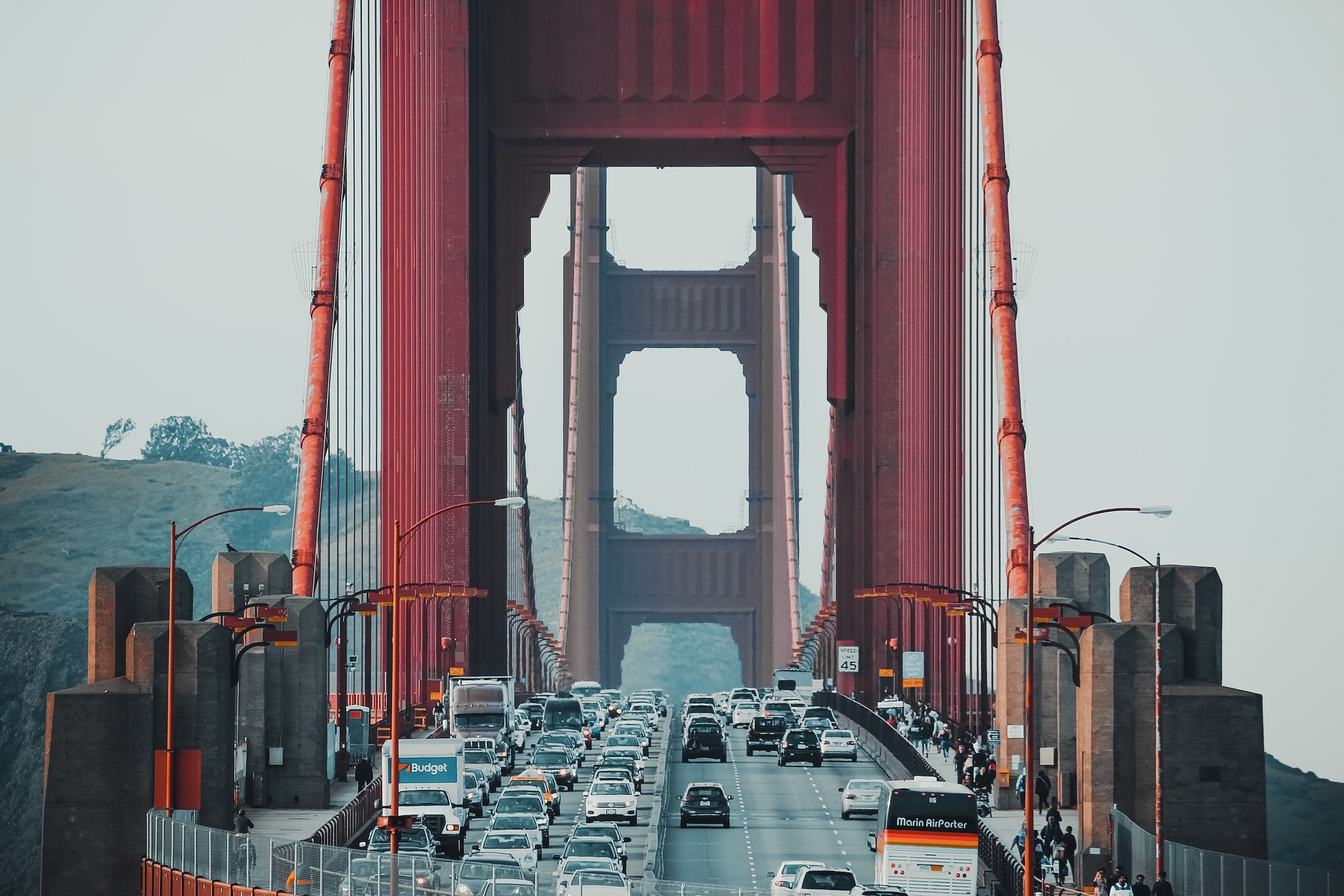Written by: Kimberly White
The most populous state in the U.S. is cracking down on the sale of new gasoline-powered vehicles. California has passed a law banning the sale of all gas cars by 2035, a pivotal step in the state’s battle against the climate emergency.
The California Air Resources Board (CARB) has voted unanimously to move forward with a historic plan to phase out the sale of gasoline-powered vehicles over the next 13 years. State regulators set interim targets requiring 35 percent of new passenger vehicles sold to be powered by electricity or hydrogen by 2026 and 68 percent by 2030.
The Environmental Defense Fund reports that California’s move to zero-emission vehicles will prevent more than 7,400 premature deaths in the state and eliminate more than 1.2 billion metric tons of GHG pollution by 2050.
“California is once-again leading the way by establishing commonsense standards that will transition to sales of all zero-polluting cars and light-duty trucks in the state. Given its unique air pollution woes and the risks to residents from climate-fueled wildfires, California desperately needs these rules to slash tailpipe pollution,” said Kathy Harris, Clean Vehicles Advocate at the National Resources Defense Council (NRDC). “Together with historic federal investments by Congress in vehicle manufacturing, transit systems, and bike and pedestrian access, this action will help lead the way toward a cleaner, more equitable transportation system for all.”
The move is significant as California is the largest auto market in the United States. The ruling will force automakers to accelerate the production of zero-emission vehicles.
“Some automakers are already ramping up development of electric models as urgency grows around the climate crisis and consumer demand for these vehicles is on the rise,” said David Reichmuth, Senior Engineer in the Union of Concern Scientists Clean Transportation Program. “These rules will help hold all car companies accountable.”
The mandate will not impact vehicles already on the road and still allows Californians to drive gas-powered cars, trucks, and SUVs and will still be able to purchase used gasoline-powered vehicles after 2035. Last year, zero-emission vehicles accounted for only 12 percent of new cars sold in the state, up from nearly eight percent in 2020. However, CARB reports that zero-emission vehicle sales have exceeded 16 percent of all new vehicles sold this year.
The vote by state regulators follows an executive order issued by Governor Gavin Newsom in 2020, which mandated that all vehicles sold within the state of California be zero-emission by 2035.
More states may soon follow suit
Several other states may soon follow suit. Seventeen states and the District of Columbia are able to adopt California’s standards. Section 177 of the Clean Air Act allows other states to adopt California’s motor vehicle emissions standards in lieu of federal requirements, according to the EPA. The states that have previously adopted California’s vehicle standards include New York, Massachusetts, Washington, Pennsylvania, and New Jersey, as well as multiple states across the nation.
Governor Jay Inslee has confirmed that Washington state will follow California’s lead by prohibiting the sale of new gasoline-powered vehicles by 2035. Washington lawmakers have already set a 2030 target for phasing out the sale of new gas-powered vehicles. All publicly owned and privately owned passenger and light-duty vehicles sold in Washington must be electric vehicles by 2030.
Inslee stated that Washington was ready to adopt California’s regulations by the end of this year.
Want to see more news like this? Sign up for our newsletter to get sustainability and climate news sent to your inbox!
Massachusetts will also join California. Governor Charlie Baker signed a climate and clean-energy bill into law in early August, which included a trigger that requires Massachusetts to implement the same standards once California decided to mandate zero-emission vehicles, according to NBC Boston.
New York Governor Kathy Hochul signed legislation prohibiting the sale of new internal combustion engine vehicles. The legislation states that the sales of all new passenger cars, trucks, off-road vehicles, and equipment must be zero-emission by 2035 and medium-duty and heavy-duty vehicles by 2045. New York State Department of Environmental Conservation Commissioner Basil Seggos said that the link between California and New York’s state programs will help New York achieve its own target by 2035.
Delaware Governor John Carney previously confirmed in March that his state would also join California in adopting its Zero Emission Vehicle (ZEV) standards.
A major step in the fight against climate change and air pollution
“We can solve this climate crisis if we focus on the big, bold steps necessary to cut pollution. California now has a groundbreaking, world-leading plan to achieve 100 percent zero-emission vehicle sales by 2035. This plan’s yearly targets – 35 percent ZEV sales by 2026, 68 percent by 2030, and 100 percent by 2035 – provide our roadmap to reducing dangerous carbon emissions and moving away from fossil fuels. That’s 915 million oil barrels’ worth of emissions that won’t pollute our communities,” said Governor Newsom.
“With the historic $10 billion we’re investing to accelerate the transition to ZEVs, we’re making it easier and cheaper for all Californians to purchase electric cars. California will continue to lead the revolution towards our zero-emission transportation future,” he added.
Environmental groups welcomed the ruling, noting it is a major step in the state’s battle against climate change and in reducing air pollution. The transportation sector is the largest source of greenhouse gas emissions in the state, accounting for more than half of the state’s carbon pollution.
“Transportation is by far the largest cause of heat-trapping emissions in California and passenger vehicles are the single largest source,” added Reichmuth. “The new standards will drive down the tailpipe emissions that are fouling the air in California and fueling the climate crisis.”
“The Advanced Clean Cars II rule is a major step towards breathable air in California communities and will be critical for the state to meet its climate goals and federal air quality standards. Other states should move swiftly to join California and adopt this life-saving rule, which will improve air quality and slow the climate crisis,” said Daniel Barad, Sierra Club California Senior Policy Advocate.
However, there is still much more that needs to be done for an equitable transition, warns Barad.
“CARB still has much work to do to ensure that this rule benefits frontline communities who need emission reductions the most. Sierra Club California will be working closely with our environmental justice partners to advance a just and equitable transition to zero-emission transportation,” Barad notes.
Header Image Credit: Saketh Garuda/Unsplash







